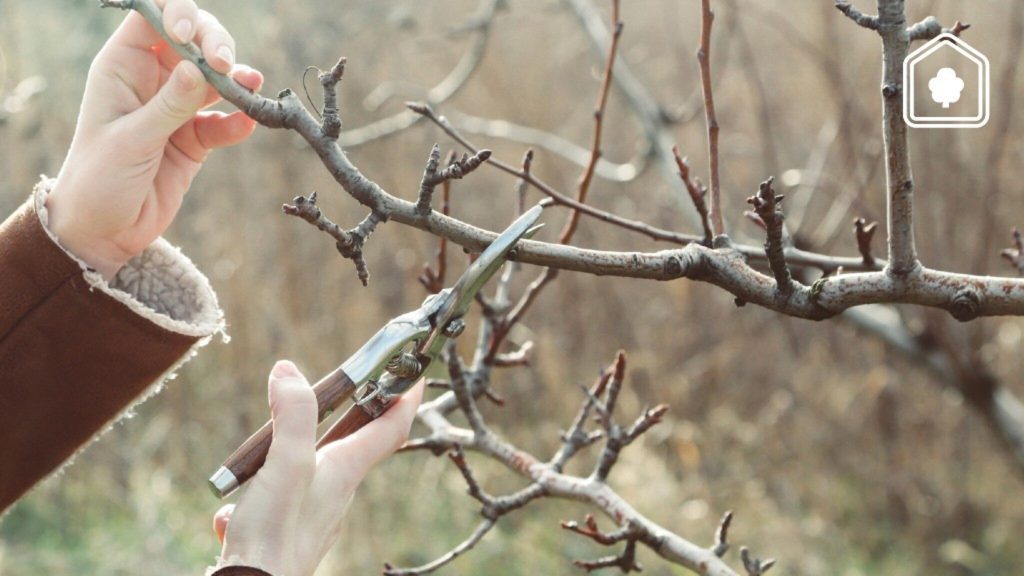Now that most of the trees and shrubs have lost their leaves, the park is barren and barren. An unpleasant sight for many, but at least this way you can easily see what you can trim. Especially if you have fruit trees and shrubs in your garden, this is a must if you want to reap the full benefits next year! Pruning in November and sometimes December is never too late, provided there are no frosts yet.
Apple trees
It is best to prune apple trees twice a year: once in mid-summer and once during the dormant season. The dormant season begins from the moment the leaves fall until spring. Is it no longer possible to prune this month? Don’t worry, this is still possible in December and into January, as long as it doesn’t freeze.
Pruning during the dormant season in particular should be taken seriously, as this encourages tree and fruit growth. Excess, damaged and diseased branches may be cut off completely and long branches may be shortened by half.
It’s also best to remove as many of the fruit spurs – curvy, thick-tipped shoots – by cutting them as close to the main branch as possible.
Always prune branches that grow inward from an apple tree. In addition, you should keep the heart of the tree as open as possible, so that as much light as possible can enter. Once it gets warmer outside, the pruning period ends. Then the tree’s sap starts flowing again.
Pear trees
On a pear tree, you can prune the main branches in half. In addition, you can prune the strongest side shoots that appeared last year to two or three buds. Finally, it is a good idea to remove all thin branches to ensure that energy is directed to the fruit spores.
quince
You can shorten quince branches by up to a third. You can also thin out weaker branches to open up the tree and reduce the risk of disease.
Blackberry bush
If you haven’t trimmed your raspberry bush yet this year, now is the time. Prune all stems that produced fruit this year almost to the ground. Leave about four strong, new stems and tie them off.
Pruning during the dormant period is also called rejuvenation pruning. If not this fall, you can also do it next spring, but before the new growth.
gooseberry
With gooseberries, you can also prune off old branches that fruited last year and return them to the ground. Leave a maximum of seven young, strong branches.
kiwi
Prune about a third of the older growth near the main trunk. In addition, all other side shoots can be trimmed to four or five buds.
Fallen trees
Sometimes it may be necessary to thin the crown of deciduous trees to allow more light to reach the leaves. To do this, simply remove a few large branches from the crown.
please note: This is only necessary once every three to six years.
Polluted willow
Although with polluted willow you are not talking about pruning, but rather “pollution,” in reality this is almost the same. The best period to do this is from November to March. When pruning, you can trim the tree down to the node.
Shrubs and other deciduous trees
As long as it doesn’t freeze after this month (and next), you can also prune shrubs and other deciduous trees if necessary. But if the mercury drops below freezing point, it is better to postpone or even skip it, otherwise you will actually harm the plant.
Some shrubs, such as hydrangea, protect themselves from the cold by consuming flowers. So first find out for each species whether you can prune this species or how to protect the plant from frost in winter.

“Lifelong food practitioner. Zombie geek. Explorer. Reader. Subtly charming gamer. Entrepreneur. Devoted analyst.”











More Stories
Revealing the ten countries that support Ukraine the most
Funny protest against mass tourism in Galician village
Kamala Harris has wind in her sails, but Trump can still win